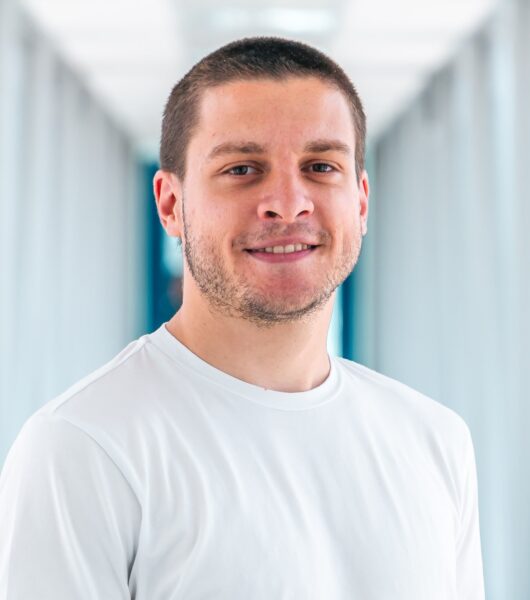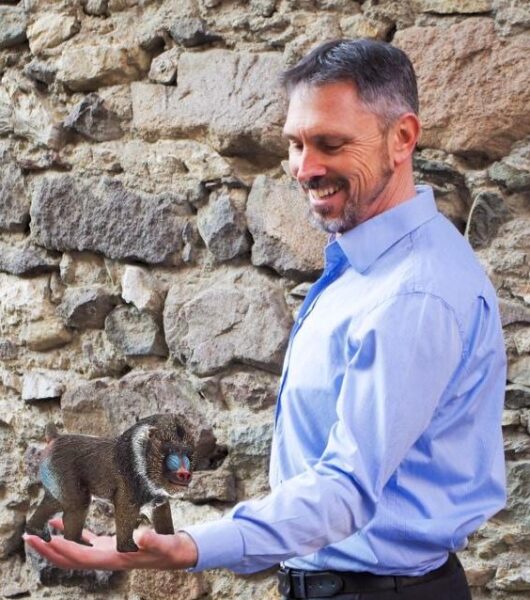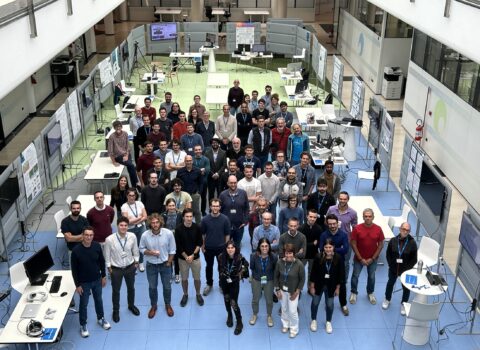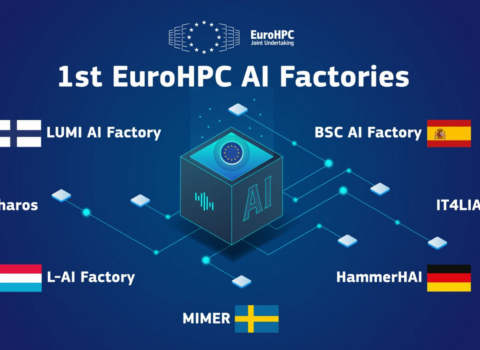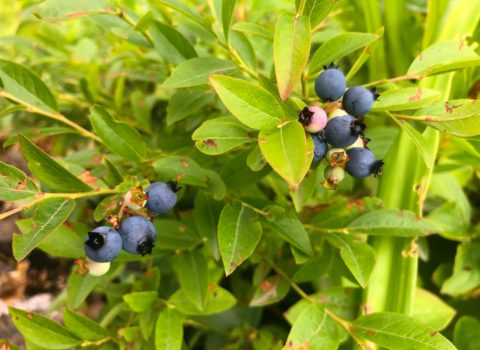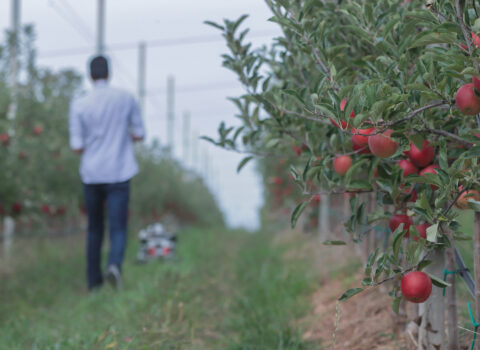
AgRimate: the future of technological and innovative agricultural pruning
FBK participates in the new European project for a more digital and sustainable agriculture
The AgRimate project aims to improve the precision and efficiency of pruning through digital and robotic tools, reducing the physical fatigue of operators and creating a safer and more inclusive working environment. The kick-off meeting for the project, which will last for 5 years and is funded under the Horizon Europeprogram, will take place on February 5 and 6 in Athens. All partners will be present to define operational strategies: Fondazione Bruno Kessler, through theTechnologies of Vision – TeV Unit of its Center for Digital Industry, is among the European partners involved, coordinated by the Spanish Tecnalia Research and Innovation Foundation.
The project responds to the challenges of pruning high-value crops, such as olive groves and vineyards, by proposing innovative technological solutions to improve the efficiency, sustainability and working conditions of agricultural operators.
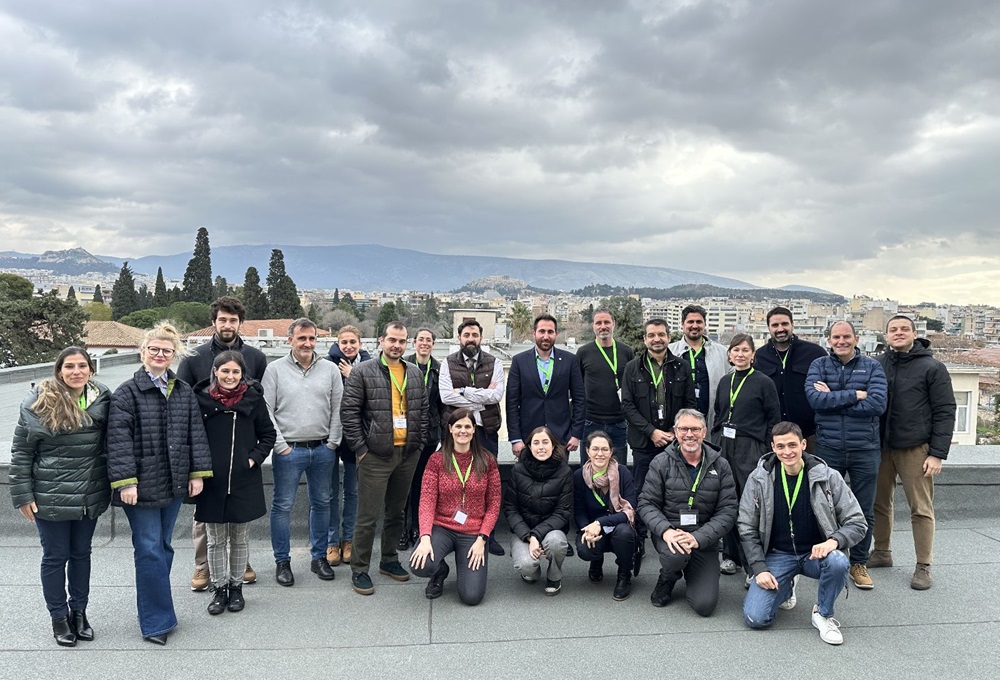 Fondazione Bruno Kessler participates with the research group from the TeV Technologies of Vision Unit – Paul Chippendale, Luigi Riz, Sergio Povoli and Fabio Poiesi – bringing the unit’s experience in artificial vision applied to the analysis of images, three-dimensional data and reconstruction of digital environments. The planned activities include the development of Augmented Reality tools to support farmers during pruning, using interactive devices that provide real-time feedback to improve the quality of work. The project involves the development of Artificial Intelligence models capable of analyzing agronomic data to support strategic decisions and improve crop management. Specifically, FBK will contribute to the design and implementation of advanced vision systems for the creation of digital twins of plants that will allow the monitoring of their health status, the automation of pruning operations and the evaluation of their effectiveness. Finally, it will deal with the evaluation of the social and economic impact of the new technologies introduced, through sustainability analysis and pilot studies conducted in collaboration with partner farms, with a particular focus on typical Italian crops such as vines and olive trees.
Fondazione Bruno Kessler participates with the research group from the TeV Technologies of Vision Unit – Paul Chippendale, Luigi Riz, Sergio Povoli and Fabio Poiesi – bringing the unit’s experience in artificial vision applied to the analysis of images, three-dimensional data and reconstruction of digital environments. The planned activities include the development of Augmented Reality tools to support farmers during pruning, using interactive devices that provide real-time feedback to improve the quality of work. The project involves the development of Artificial Intelligence models capable of analyzing agronomic data to support strategic decisions and improve crop management. Specifically, FBK will contribute to the design and implementation of advanced vision systems for the creation of digital twins of plants that will allow the monitoring of their health status, the automation of pruning operations and the evaluation of their effectiveness. Finally, it will deal with the evaluation of the social and economic impact of the new technologies introduced, through sustainability analysis and pilot studies conducted in collaboration with partner farms, with a particular focus on typical Italian crops such as vines and olive trees.
“Agrimate’s main mission is to preserve and enhance centuries-old agricultural skills such as the art of tree pruning. To this end, we will develop an artificial intelligence system that learns from the pruning techniques of experienced farmers, analyzing their methods and evaluating their effectiveness. Taking into account the challenges posed by climate change, the project will examine how automated pruning variants affect plant growth and productivity, identifying both beneficial effects and risk factors. To effectively transfer this knowledge to young farmers, we will leverage Augmented Reality (AR) technology to visually guide farmers by superimposing virtual cut marks on trees, indicating precise positions and depths for optimal pruning. In addition, artificial intelligence will provide detailed explanations for each suggested cut, fostering confidence and transparency in the system. This comprehensive approach will allow the new generation of farmers to preserve the knowledge of the past by adapting it to the challenges of the present and the future”, Paul Chippendale, Principal Investigator for FBK said.
AgRimate aims to provide digital and robotic tools to improve the precision and efficiency of pruning, reducing physical fatigue through robotic exoskeletons and creating a safer and more inclusive working environment. In addition, it intends to develop a digital ecosystem for the management and monitoring of agricultural operations, promoting more sustainable practices and the inclusion of rural communities through training tools in Augmented Reality accessible to all.
The steps of the project
AgRimate is a cutting-edge project in the agricultural sector, with the aim of combining technological innovation and social sustainability. Thanks to an international consortium and a multidisciplinary approach, the project aims to provide concrete tools to support farmers in the transition to a digital and sustainable agriculture. The kick-off meeting for the project is taking place these days in Athens, marking the official start of the activities of the following development phases:
- Analysis of needs and definition of requirements, with the involvement of agricultural stakeholders to identify challenges and opportunities.
- Development of digital tools, such as Augmented Reality applications to provide real-time instructions and support during pruning.
- Integration of robotic solutions, including assisted exoskeletons and autonomous robots to facilitate the work of farmers.
- Pilot testing and field validation, with trials in partner farms to evaluate the effectiveness of the solutions.
- Evaluation of the social and economic impact, to measure the benefits of new technologies in terms of productivity and well-being of farmers.
- Dissemination and training, with communication and training activities to promote the adoption of the solutions developed.
Each region and each crop has its own specificities: an important part of the project involves applications on the local area to enhance and solve local challenges. For this reason, a step will concern the involvement of partners outside the consortium, through cascading funding to which half of the call funds will be allocated for the definition and resolution of new challenges. Both local farms interested in applying the technologies developed by the project in their activities and startups and companies interested in developing new technologies to respond to new challenges may be involved.

Partners involved
The AgRimate consortium includes leading research institutions and companies in technology and agriculture from all over Europe, including the Spanish coordinators Fundacion Tecnalia Research & Innovation, Tampereen Korkeakoulusaatio SR – Finland, Fondazione Bruno Kessler – Italy, Humboldt-Universitaet zu Berlin – Germany, Technische Universitat Berlin – Germany, Geoponiko Panepistimion Athinon – Greece, Xymbot Digital Solutions S.L. – Spain, Robotnik Automation SL – Spain, Union de Pequenos Agricultores y Ganaderos – Spain, Union de Pequeños Agricultores y Ganaderos de Jaen – Spain, F6S EU Tech Innovation Network Designated Activities – Ireland and Iuvo SRL – Italy.

“This project has received funding from the European Union’s Horizon Europe research and innovation programme under grant agreement N° 101182739.
Views and opinions expressed are however those of the author(s) only and do not necessarily reflect those of the European Union or European Research Executive Agency. Neither the European Union nor the granting authority can be held responsible for them.”



